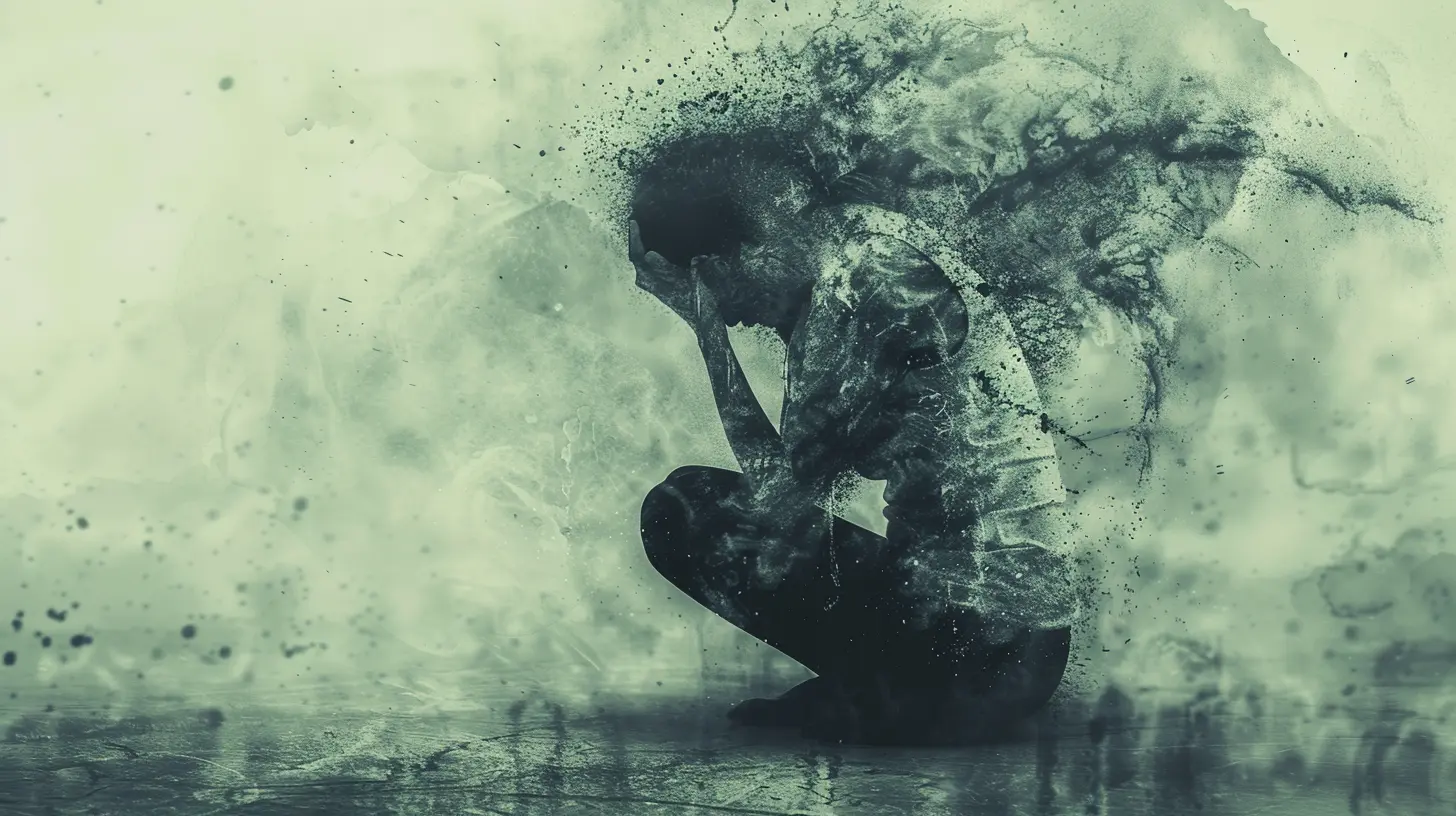Long-Term Effects of Chronic Anxiety on Mental Health
5 June 2025
Anxiety is something we've all felt at some point—before an exam, during a job interview, or while waiting for important news. But what happens when that feeling doesn't go away? When it lingers for months or even years? Chronic anxiety isn't just a temporary worry; it's a persistent, often overwhelming presence that can take a serious toll on mental health.
In this article, we'll dive into the long-term effects of chronic anxiety, how it reshapes the brain, and why managing it is crucial for overall well-being. If you’ve been struggling with anxiety or know someone who is, this might be the eye-opener you need.

What Happens When Anxiety Becomes Chronic?
Anxiety, in small doses, is actually useful—it keeps us alert and prepared for potential threats. But when anxiety becomes chronic, the brain goes into overdrive, constantly perceiving danger even when none exists. This prolonged state of heightened alertness can have serious consequences, not just mentally but physically too.Imagine a smoke alarm that won’t stop blaring, even when there’s no fire. Your nervous system stays on high alert, and over time, this constant stress drains mental and physical energy, affecting different aspects of life.

The Long-Term Effects of Chronic Anxiety on Mental Health
1. Increased Risk of Depression
Long-term anxiety and depression often go hand in hand. When your mind is stuck in a cycle of worry, it can slowly drain feelings of joy and motivation. Studies suggest that chronic anxiety alters brain chemistry, particularly neurotransmitters like serotonin and dopamine—both of which are key players in regulating mood.Over time, this imbalance may lead to depression, making it even harder to find relief from persistent negative thoughts. It’s like being trapped in a loop where one fuels the other, making it tough to break free.
2. Cognitive Decline and Memory Issues
Ever noticed how hard it is to concentrate when you're anxious? Chronic anxiety doesn’t just cloud thoughts temporarily—it can actually impact long-term cognitive function. Research suggests that prolonged stress and anxiety can shrink the hippocampus, the part of the brain responsible for memory and learning.People with chronic anxiety often struggle with brain fog, difficulty retaining information, and even an increased risk of conditions like Alzheimer’s. In short, excessive worrying today could lead to cognitive issues down the road.
3. Emotional Dysregulation
When anxiety takes over, emotions can feel like a rollercoaster—one minute, you're irritated; the next, you're overwhelmed with fear. Chronic anxiety often makes it difficult to manage emotions effectively, leading to frequent mood swings, frustration, and heightened sensitivity to stress.This emotional turbulence can strain relationships, making social interactions feel exhausting rather than enjoyable. Over time, emotional instability may even lead to disorders like borderline personality disorder (BPD) in severe cases.
4. Increased Risk of Substance Abuse
Many people turn to alcohol, drugs, or other coping mechanisms to numb anxiety. While this might seem like a temporary escape, it often leads to long-term problems.Substance abuse is a common consequence of untreated chronic anxiety, as individuals seek relief from overwhelming thoughts. Unfortunately, this creates a vicious cycle where substance dependence worsens anxiety symptoms rather than easing them.
5. Social Isolation and Avoidance Behavior
Chronic anxiety often leads to social withdrawal. When the fear of judgment, embarrassment, or failure becomes too much, people may start avoiding social interactions altogether.At first, it might feel like staying in your comfort zone is the best way to cope. But in the long run, isolation can worsen anxiety, leading to loneliness, depression, and even social phobia. Human connection is essential for mental well-being, and chronic anxiety makes maintaining those connections incredibly challenging.
6. Heightened Risk of Panic Disorders
If anxiety remains unmanaged for years, it can develop into panic disorders characterized by sudden, intense episodes of fear—often without any apparent trigger.Panic attacks can be physically and mentally debilitating, leading to symptoms like a racing heart, shortness of breath, dizziness, and an overwhelming sense of doom. The fear of experiencing another attack can create additional anxiety, reinforcing the cycle.
7. Increased Likelihood of Developing OCD and PTSD
Chronic anxiety isn't just limited to generalized anxiety disorder (GAD); it can also pave the way for other mental health conditions.- Obsessive-compulsive disorder (OCD): Persistent anxiety can cause individuals to develop compulsive behaviors or intrusive thoughts as a way to regain control.
- Post-traumatic stress disorder (PTSD): Long-term anxiety, especially when linked to traumatic experiences, can increase the likelihood of PTSD, making it challenging to heal from past wounds.
8. Negative Self-Perception and Low Self-Esteem
When anxiety rules your thoughts for too long, it starts shaping your self-image. Chronic anxiety often leads to feelings of inadequacy, self-doubt, and extreme self-criticism.People with chronic anxiety frequently question their capabilities, replay mistakes in their heads, and assume the worst about themselves. Over time, this can severely damage self-esteem and confidence, making everyday tasks feel like insurmountable challenges.
9. Increased Risk of Suicidal Thoughts
In extreme cases, chronic anxiety can contribute to suicidal ideation. When anxiety persists for years without relief, it can lead to a sense of hopelessness. The overwhelming mental burden may make it difficult for individuals to see a way forward, increasing the risk of suicidal thoughts.This highlights the importance of early intervention—seeking help and utilizing coping strategies before anxiety escalates into something more severe.

How to Manage and Reduce Chronic Anxiety
If you or someone you know is struggling with chronic anxiety, the good news is that there are ways to take control. While overcoming anxiety isn't an overnight process, small steps can make a significant difference.1. Seek Professional Help
Therapists and mental health professionals can provide guidance on managing anxiety through cognitive-behavioral therapy (CBT), medication, or other treatment options.2. Practice Mindfulness and Relaxation Techniques
Techniques like meditation, deep breathing, and progressive muscle relaxation can help calm an overactive mind.3. Stay Physically Active
Regular exercise has been shown to reduce anxiety by releasing endorphins and improving overall mood.4. Build a Support System
Surround yourself with understanding friends and family who can offer reassurance during difficult moments.5. Challenge Negative Thoughts
Train your mind to recognize and counter anxious thoughts with rational responses.6. Prioritize Sleep and Nutrition
Lack of sleep and poor diet can worsen anxiety symptoms, so maintaining healthy habits is essential.
Final Thoughts
Chronic anxiety isn't just about feeling nervous—it’s a powerful force that can reshape the brain and impact mental health in the long run. The good news? It’s manageable. Recognizing the signs early and taking proactive steps can prevent anxiety from becoming an all-consuming cycle.You don’t have to fight this battle alone. Whether it’s through therapy, lifestyle changes, or simply reaching out to a loved one, help is available. Your mental health matters, and taking the first step toward healing is the bravest thing you can do.
all images in this post were generated using AI tools
Category:
AnxietyAuthor:

Matilda Whitley
Discussion
rate this article
2 comments
Orionyx Brown
Chronic anxiety can cast a long shadow over mental health, but understanding its effects empowers us to reclaim our lives. By fostering resilience, seeking support, and embracing self-care, we can break free from anxiety's grip. Let's transform our struggles into strength and inspire others to embark on their healing journey!
June 15, 2025 at 4:10 AM

Matilda Whitley
Thank you for sharing such insightful thoughts! Empowerment through understanding and support is indeed crucial in overcoming chronic anxiety and fostering resilience. Together, we can inspire healing and transformation.
Robert Rocha
This article expertly highlights the profound and lasting impact of chronic anxiety on mental health. By exploring both psychological and physiological effects, it underscores the importance of early intervention and effective coping strategies to mitigate long-term consequences. A must-read!
June 7, 2025 at 4:41 AM

Matilda Whitley
Thank you for your thoughtful feedback! I'm glad you found the article's insights on the impact of chronic anxiety and the importance of early intervention valuable.


